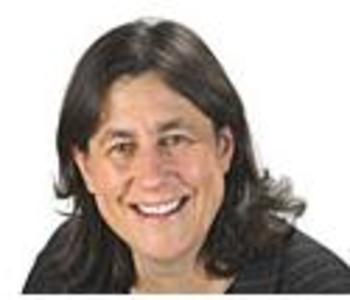As part of the CBC's end-of-season ritual, chief correspondent Peter Mansbridge usually asks members of The National 's political panel to name one Canadian figure they expect to rise from relative obscurity over the coming year.
By definition, the exercise is a hit-and-miss one.
The question is primarily a pretext to draw attention to some potentially interesting development that might otherwise go unmentioned.
But since electoral politics runs on hope as much as it does on talent, that small section of the discussion has the merit of putting a spring in the step of a handful of politicians as they head for the cottage and the barbecue circuit.
To wit, the mere mention of Alberta Liberal Leader Kevin Taft – whose party scored an upset by-election win in the Calgary riding of former Conservative premier Ralph Klein the very week of the panel this year – earned me a gift-wrapped package of three booklets devoted to his political thinking. (I'm not convinced I'll take them to the beach, though).
A less charitable question to explore, and one immensely less likely to earn panelists the gratitude of the nominees, would be to ponder which of Canada's leading politicians might not make it to the next CBC season-ender.
This particular summer finds Quebec Premier Jean Charest at the top of that list.
To put it mildly, Charest, who barely clung to power in an election in March, is not on the way to a recovery.
Neither a tax-cutting budget, nor a cabinet that achieved gender parity for the first time ever in Canada has lifted his fortunes in the polls.
The advent this week of Pauline Marois as the new leader of the Parti Québécois brought about a fresh round of devastating numbers for the premier.
In two separate polls, done by CROP and Léger Marketing, Charest trailed Marois and Action Démocratique Leader Mario Dumont for best premier.
Charest also ran third in all but one of seven CROP leadership-related categories, ranging from which of the three leaders had the best ideas for Quebec, to which is the most trustworthy.
He beat Marois for second place as the leader most preoccupied with the fiscal burden of Quebecers.
But Dumont, whose party has just voted against the Liberal tax cuts, still beat
the Premier on the fiscal relief issue by 11 points.
Charest has so far maintained that he will lead his party in another election.
With every passing poll, more Quebecers disagree with that decision.
Their ranks include a growing number of Liberals.
When the premier said he was willing to risk an election over his budget last month, a sizeable number of the candidates who had just run under his banner told the party that they were not inclined to repeat the experience.
After the 1995 referendum, Daniel Johnson, Charest's predecessor, was pressured into leaving by corporate Quebec so as to make room for a more popular federalist champion.
But the decline of the sovereignist cause means that there is no longer any real sense of urgency on the unity front.
Still, the prospect of Quebec's only openly federalist provincial party reduced to a marginal presence does not sit well with Liberal power brokers.
Charest might still turn his mind to new career challenges over the summer.
If he does not, he will face a dicey party review of his leadership next spring.

























Laissez un commentaire Votre adresse courriel ne sera pas publiée.
Veuillez vous connecter afin de laisser un commentaire.
Aucun commentaire trouvé